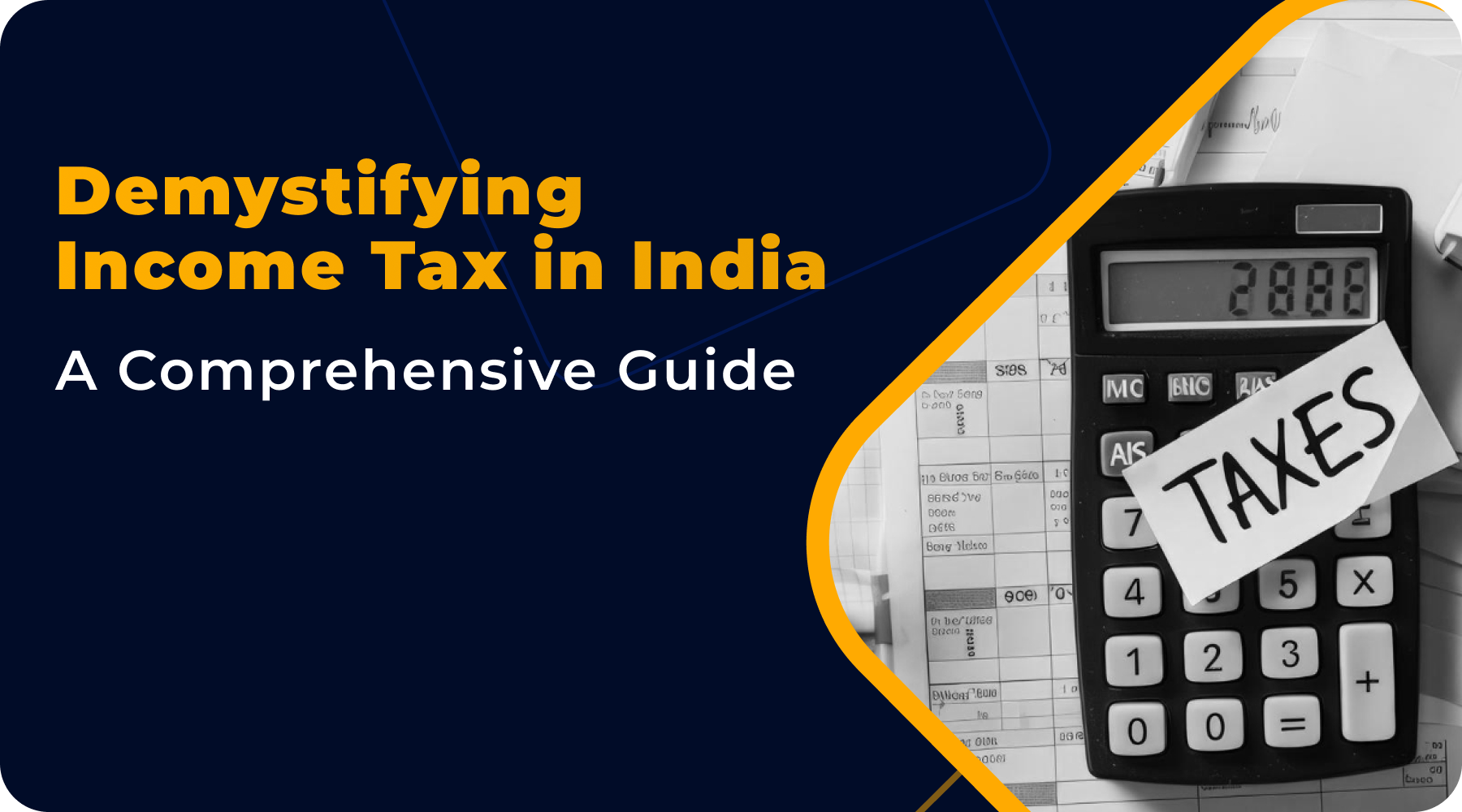Home
ChroniclesIncome Tax
Demystifying Income Tax in India: A Comprehensive Guide
By CA Sai Veer Kumar Muthyam – Founder and CEO |
Updated on:Oct 10th, 2024
|
15 min read
Visitor Count: 0
Demystifying Income Tax in India: A Comprehensive Guide
Introduction
The Indian Income Tax Act is a complex piece of legislation that
governs the taxation of individuals and businesses. Understanding the intricacies of this act is
crucial for ensuring compliance and minimizing tax liabilities. In this blog, we will provide a
comprehensive overview of the Income Tax Act, covering key concepts, recent amendments, and best
practices for compliance.
Key Concepts
- Resident vs. Non-Resident:Understanding the residency status
of individuals and businesses is essential for determining tax liability.
- Heads of Income: The Income Tax Act recognizes five heads of
income: Salaries, House Property, Business or Profession, Capital Gains, and Other Sources.
- Tax Slabs and Rates: Familiarize yourself with the applicable
tax slabs and rates for different income brackets.
- Deductions and Exemptions: >Learn about the various
deductions and exemptions available to reduce taxable income.
- Tax Planning Strategies: Explore effective tax planning
strategies to minimize your tax burden.
Recent Amendments
The Finance Act, 2024, introduced several significant
changes to the Indian tax laws, including:
Direct Taxes:
- Reduction in surcharge on income tax: The surcharge on income tax was
reduced from 37% to 25% for individuals and HUFs with total income up to Rs. 5
crore.
- Extension of tax relief for capital gains: The long-term capital gains
tax exemption for listed equity shares was extended to 2025.
- Changes in taxation of retirement funds: The government proposed
certain changes to the taxation of retirement funds, including the National Pension
System (NPS) and Provident Fund (PF).
- Introduction of new tax deduction provisions: New tax deduction
provisions were introduced for certain expenses, including expenses incurred for the
education of children with disabilities.
Best Practices for Compliance:
- Maintain Accurate Records: Keep detailed records of all
financial transactions and documents.
- File Returns on Time: Ensure timely filing of income tax
returns to avoid penalties.
- Seek Professional Advice: Consult with a tax expert for
personalized guidance and assistance.
- Stay Updated with Changes: Keep abreast of the latest
amendments and updates to the Income Tax Act.
Other Changes:
- Introduction of a digital rupee: The government announced its plans to
introduce a digital rupee, a central bank digital currency (CBDC).
- Focus on green initiatives: The Finance Act, 2024, included several
measures to promote green initiatives, such as incentives for electric vehicles and
renewable energy.
Conclusion
Navigating the complexities of the Income Tax Act can be challenging, but by understanding the
key concepts, recent amendments, and best practices, you can ensure compliance and minimize your
tax liabilities. Vider can assist you in managing your income tax compliance and providing
expert advice.
Vider Contact Details:
